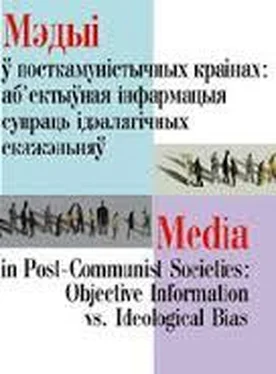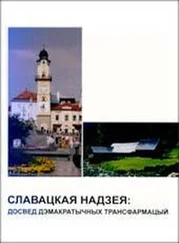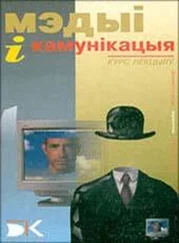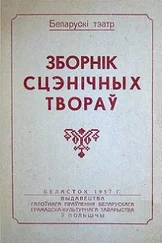The majority of the views presented above presuppose the existence of a civilized situation of a democratic society with its shaped and progressing political and legal space.
Under another scenario of the societal development, when a setback or a backward phase transition to totalitarism takes place, many positions change their sense. The state is advancing, and the islands of independence are going under water.
The state-owned media along with the state’s analysts are openly used as a one-target informational weapon. They are simply being turned into a supplement to the real power, which can be described as something like a squared trunk instead of branches, very convenient for being “decorated” with barbed wire and bars. Society is being turned into a voiceless servant of the government, deprived of any rights. And, the corresponding media become the means of mass idiotization, while their analytical partners under the guidance of ideological front soldiers (not any longer the analysts) become the crematories of the future…
Belarus is a concrete example. This is the country, which demonstrates with nearly a laboratory accuracy the restoration of many elements of a totalitarian society. The accumulated experience may serve as the basis for a manual about the role of mass media in the fight for preserving the controlling and correcting mechanisms, or basically, for a civilized future of the country.
The above mentioned mechanisms had been thoroughly dismantled in the state system of Belarus by late 1996, when the president found himself free from any control by the legislature and the judiciary. Opposition parties were forced out from the power structures together with the transformed Supreme Soviet into the National Assembly, which represented nobody. The remaining deputies represented less than 40% of constituencies. The third-sector structures — the non-state media led by the Belarusian Association of Journalists, the Belarusian P.E.N., human rights and entrepreneur groups, and think tanks — attempted to take up the controlling functions. These four groups along with the opposition parties and independent trade unions, which also found themselves within the third sector, made up the nucleus of active resistance. The independent media, being a intermediary amplifier, which worked for all mentioned groups, found themselves in an extremely dangerous situation, not only in connection with the direct pressure from the authorities, including the forced closure of several publications, criminal prosecution of journalists, etc. Over the past several years, both the internal and — what is especially curious! — foreign financial support have been monotonously decreasing. A strange logic of several solid donating foundations led to the situation, when many influential non-state media permanently found themselves in the situation “between life and death”. The operation of their editorial offices in the course of considerable periods of time turned into a heroic deed for the sake of supreme aims.
Well, the logic is not that surprising, if we take into account that in the process of democracy teaching in Belarus, the specific gravity of fourchetology always remarkably outweighed a serious analysis of the local situation. Due to the lack of serious model-building (and even an order for it), teachers would often successfully take use of extremely irresponsible and incompetent consultations by either their trustees or the “white noise”, which was produced during numerous allegedly expertise-based roundtable meetings.
Meanwhile, owing to their special role the independent media should accumulate the sufficient internal and external support. The weakening of the independent media leads to the collapse of the whole inner system of distribution of the controlling mechanisms. In a more global sense, it leads to the destruction of the demarcation line of the world democratic community, which the structures of civil society in Belarus have yet managed to maintain.
Mass media: a forum for public debates and belarusian reality
Valer BULHAKAŪ, Chief editor of “ARCHE” journal, Belarusian Association of Journalists, Belarusian Collegium. BELARUSIAN MEDIA COVERAGE OF BELARUS—RUSSIAN INTEGRATION
To explore this topic, it is important to answer the question: what “Belarus—Russian integration” means and when it started to count off. It would not be right to impute the honor of “the first Belarus—Russian integrator” to the first ever Belarusian president Aliaksandr Lukashenka, as integration initiatives were first voiced by the Belarusian side in the media long before the summer of 1994. At the same time, it is worth noting that the integration rethoric itself has not changed a lot over the past 10 years.
Immediately after Belarus gained independence, the Belarusian state-owned media began to spin off the topic of integration, portraying it as a matter of paramaount importance for the survival of the Belarusian economy and Belarusian state, in general. This idea is stressed very much in the interview given by the then Belarus Prime Minister (Viachaslaū Kebich). Already during a visit to Moscow in July 1992, Belarus premier did not rule out a possibility of creating a confederation between Belarus and Russia, had such a form be required by economic relations between the two countries. Mr.Kebich’s further integration game as well as the nature of his political rhetoric was sufficiently predictable. In a March 1993 speech to the heads of executive committees of municipal and distgrict Soviets of People’s Deputies, he was callling to create an economic union in the framework of the Commonwealth of Independent States (CIS).
Simultaneously, the Kebich government spoke out in favor of Belarus joinining the CIS Collective Security Pact, a security grouping of former Soviet republics, founded in 1992. Kebich backed the idea, arguing that it would allow the Belarusian military complex to work for the Russian military market. In the autumn of 1993, he also voiced the idea of creating a single currency zone together with Russia.
The only considerable difference between the pre-summer 1994 situation from the situation after Lukashenka came to power was the lack of consensus on the question of Belarus—Russian integration. The most consistent opposition to Kebich on this issue came from the then speaker of Belarus parliament, Stanislau Shuskevich. By the way, in an interview to the 19 November 1993 Zviazda daily, he reasoned the need for rapprochement with Russia by hopes that it would push the Belarusian government towards reforms.
According to Belarusian media reports, Shuskevich doubted the need for cooperation with Russia in the military field and was condemning Kebich’s initiative of Belarus joining the CIS collective security grouping. Shushkevich also was very doubtful about the idea of economic union with Russia, especially the part that dealt with creating a single (Russian) currency zone.
The pursuing of his own political course ended disgracefully: Shushkevich was ousted from the post of parliament speaker. This, however, cannot be said about the nature of his political rhetoric regarding the Belarus—Russian integration. The pro-democracy politicians would later pick up Shushkevich’s rhetoric, and the independent media started to circulate the typologically similar views. Right after Sushkevich’s resignation, Kebich started out his presidential campaign, highlighting the topic of Belarus—Russian integration as a priority. Kebich’s statements of that time almost match the later rhetoric of Lukashenka. On the eve of the 1994 presidential elections, Kebich gave a pro-Russian interview to newspaper Pravda. The crash of Kebich’s election campaign and Lukashenka’s victory led to the situation when representatives of the official authorities tabooed any criticism against the Belarus—Russian integration in the state-controlled media. The taboo has lasted almost until 2002. Simultaneously, the pro-democracy independent media took a critical stance on this topic.
Читать дальше




![Невядома - Быць (або ня быць) сярэднеэўрапейцам [сучаснае польскае мысьленьне]](/books/49075/nevyadoma-byc-abo-nya-byc-syaredneeЎrapejcam-such-thumb.webp)




![Ная Геярова - Институт проклятых. Сияние лилии [litres]](/books/407702/naya-geyarova-institut-proklyatyh-siyanie-lilii-litr-thumb.webp)

